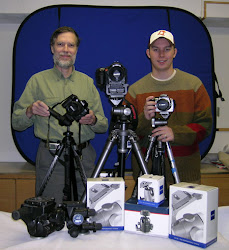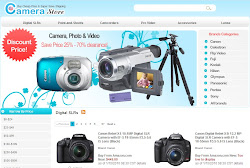If I asked a new camera buyer to describe his or her new camera to me, I would be willing to bet $100 that within the first 3 sentences, I heard the word megapixels. I would also be willing to bet $1000, that the word image sensor never comes up in the description whatsoever. You may be asking yourself, well who cares? In reality, you should if your considering buying a new digital camera. You really need to know what your getting, and what is the difference between megapixels and image sensors.
Most people understand, that megapixels affect the resolution of the pictures they are taking. That higher is better, give that the more megapixels you have, the higher resolution of pictures you can take. And why is that important? Maybe because they get better pictures? Well, maybe but not necessarily. Maybe because we've just been taught that more is better, so higher megapixels must be a better thing. Well, I'm hear to tell you, that myth is not necessarily true. If fact, it can actually degrade the level of your picture quality, if your image sensor can't handle the extra pixels. Image sensor you say, what is that? Well, glad you asked.
In the simplest terms, your image sensor is basically the replacement for the film in your old school film cameras. Sounds like a pretty important part of the equation now doesn't it. Well, your right it is. The image sensor, is basically digital receptors that are sensitive to light. Kind of like film was. The thing that makes an image sensor better is size. A bigger sensor, allows for hold more receptors, and consequently more pixels. Where manufacturers get into problems, is when they try to cram too many pixels into a image sensor that is not really equipped to handle it. When this happens you can actually degrade the quality of your pictures, and end up with image distortions in the guise of image noise. Basically small artifacts that occur throughout your image that shouldn't be there.
In summary, more megapixels can be a good thing when used with a large enough sensor to handle them. So when comparing cameras take both megapixels and sensors into account. If you look at two cameras that are 10 megapixel cameras, but one has a sensor that is 20% larger, then that is the camera you want.
Getting the perfect camera, is never an easy thing, especially with the way digital technology is constantly changing. Fortunately, there are plenty of helpful websites online, that can narrow down your search and help you find the camera with all the features important to you.
Partners : Cheap Handbags4u dining room table sets







0 comments:
Post a Comment